- News
- Reviews
- Bikes
- Accessories
- Accessories - misc
- Computer mounts
- Bags
- Bar ends
- Bike bags & cases
- Bottle cages
- Bottles
- Cameras
- Car racks
- Child seats
- Computers
- Glasses
- GPS units
- Helmets
- Lights - front
- Lights - rear
- Lights - sets
- Locks
- Mirrors
- Mudguards
- Racks
- Pumps & CO2 inflators
- Puncture kits
- Reflectives
- Smart watches
- Stands and racks
- Trailers
- Clothing
- Components
- Bar tape & grips
- Bottom brackets
- Brake & gear cables
- Brake & STI levers
- Brake pads & spares
- Brakes
- Cassettes & freewheels
- Chains
- Chainsets & chainrings
- Derailleurs - front
- Derailleurs - rear
- Forks
- Gear levers & shifters
- Groupsets
- Handlebars & extensions
- Headsets
- Hubs
- Inner tubes
- Pedals
- Quick releases & skewers
- Saddles
- Seatposts
- Stems
- Wheels
- Tyres
- Health, fitness and nutrition
- Tools and workshop
- Miscellaneous
- Cross country mountain bikes
- Tubeless valves
- Buyers Guides
- Features
- Forum
- Recommends
- Podcast
review
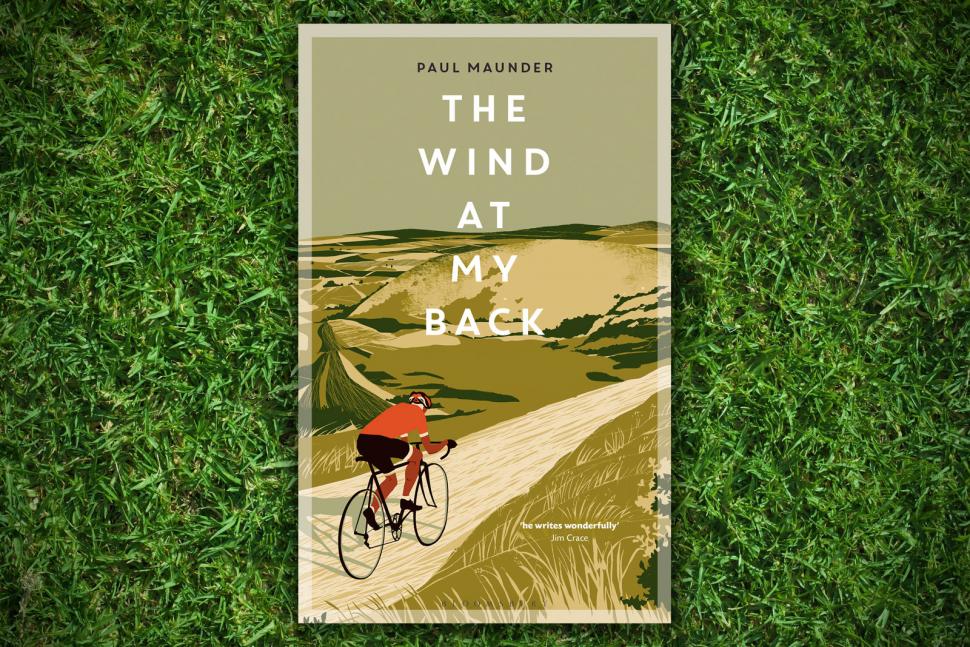 The Wind At My Back by Paul Maunder
The Wind At My Back by Paul Maunder£16.99
VERDICT:
We can all appreciate the joy of cycling when on the bike, but here is an opportunity to enjoy it off the bike as well
Weight:
390g
Contact:
At road.cc every product is thoroughly tested for as long as it takes to get a proper insight into how well it works. Our reviewers are experienced cyclists that we trust to be objective. While we strive to ensure that opinions expressed are backed up by facts, reviews are by their nature an informed opinion, not a definitive verdict. We don't intentionally try to break anything (except locks) but we do try to look for weak points in any design. The overall score is not just an average of the other scores: it reflects both a product's function and value – with value determined by how a product compares with items of similar spec, quality, and price.
What the road.cc scores meanGood scores are more common than bad, because fortunately good products are more common than bad.
- Exceptional
- Excellent
- Very Good
- Good
- Quite good
- Average
- Not so good
- Poor
- Bad
- Appalling
In The Wind At My Back Paul Maunder looks back at the various stages of his cycling life, and reflects on the attraction of cycling. What is it that we find so appealing about the activity, and why? To borrow the title of another book, It's not about the bike – but in this case, it is about the cycling.
- Pros: Does a good job of explaining the simple pleasures of cycling
- Cons: Will probably only be preaching to the converted
We have already come across Maunder's writing in Rainbows in the Mud, described as 'his first non-fiction book'. It was clearly written by someone with a deep passion for – and knowledge of – the world of cycling, and both qualities are present here as well.
If this is now his second non-fiction work, then presumably Maunder had already produced some works of fiction... It turns out that he has written 'four novels, plus a couple of half-finished attempts', but none have been published, making him 'a failed novelist, because I have yet to publish a novel, but a novelist all the same'.
Maunder also classes himself as 'a failed racing cyclist', as he became 'bored by racing and by training, I was stale'.
Fortunately for us he was able to capitalise on these two failures when a mid-life crisis loomed, 'which manifested itself as a switch between literary genres': basically, he started writing about something that he knew and cared about.
Maunder is careful not to call this book an autobiography – which is just as well, because I fear that that would limit its appeal. While there is still a biographical element to it, as the book is based on his own experiences of cycling, it is really a 'deeply personal and lyrical explanation of what it means to ride a bicycle'.
Maunder writes about the many stages of his cycling life, including learning to ride a bike, receiving his first bike for Christmas, his first solo bike ride, his first group ride with the CTC (as Cycling UK was called then), and his first race.
Much like Max Leonard in Higher Calling, he manages to convey the appeal of cycling in mountains: 'Cyclists know that we climb to escape the mundane and to redeem ourselves. We descend simply to feel alive.'
'Competitive commuting' has always been a sport for many, including Maunder, and he does a good job of explaining the appeal – and 'the rules'.
Many writers will describe the physical benefits of an outdoor exercise, but few explore the mental benefits so thoughtfully, with cycling being 'an effective salve for depression'.
Maunder considers the merits of cycling alone and in groups, and goes on to recount Billy Connolly's description of cyclists as 'sociable loners', due to 'the curious paradox of cycling as an activity for loners, undertaken in groups'.
While many of us will have similar experiences to Maunder over our lives, most of us will never be able to write a book like this. He manages to capture the pleasures of cycling far more articulately than most of us could ever do, and it is a delight to revisit some of the most significant cycling experiences in your own life.
> Essential reading: books every cyclist should have on their shelves
If you happen to live in the Chilterns (as I do), then you will have even more in common with Maunder as he has lived in that area for much of his life: you will probably know many of the roads and villages that played a role in his memorable cycling experiences.
Once you have read the book you will understand why the majority of titles in the bibliography are not about cycling: poetry, walking, and the great outdoors dominate the list. It is revealing to see which cycling books Maunder has chosen to feature: based on that, I would say that if you like the aforementioned Higher Calling, Mountains by Michael Blann, or The Rider by Tim Krabbe, or Vélo by Paul Fournel, then you are likely to enjoy what is on offer in The Wind At My Back.
Verdict
We can all appreciate the joy of cycling when on the bike, but here is an opportunity to enjoy it off the bike as well
road.cc test report
Make and model: The Wind At My Back by Paul Maunder
Size tested: n/a
Tell us what the product is for and who it's aimed at. What do the manufacturers say about it? How does that compare to your own feelings about it?
From Bloomsbury:
In this deeply personal and lyrical exploration of what it means to ride a bicycle, Paul Maunder explores how our memories have a dialogue with landscape and how cycling and creativity are connected. Taking a journey through the places that have shaped him, we ride across wild moorland, through suburbia and city streets, into quintessentially English pastoral scenes. We see too some of the darker parts of the British countryside, sites of great secrecy that intrigue the imagination. This is a book about how landscape can sustain us, and how even an hour's escape can inspire our creative sides. The bicycle allows us to explore and dream, and return in time for dinner.
Tell us some more about the technical aspects of the product?
Title: The wind at my back
Author: Paul Maunder
Publisher: Bloomsbury
Date: 17/5/18
Format: Hardback
Pages: 266
ISBN: 978147294813
Price: £16.99
Rate the product for value:
5/10
Average price for a hardback; little saving from going electronic.
Tell us what you particularly liked about the product
It puts into words the experiences that many of us have on a bike.
Tell us what you particularly disliked about the product
The language can get quite 'flowery' at times.
Did you enjoy using the product? Yes
Would you consider buying the product? Yes
Would you recommend the product to a friend? To those I feel confident would appreciate it.
Use this box to explain your overall score
It may be in a fairly niche genre of cycling books, but this is probably as good an example as you will find on the meaning of cycling.
About the tester
Age: 55
I usually ride: My best bike is:
I've been riding for: Over 20 years I ride: Every day I would class myself as: Expert
I regularly do the following types of riding: commuting, touring, club rides, sportives, general fitness riding
Latest Comments
- cmedred 35 min 11 sec ago
Isn't the simple solution to let transgender women ride and let naturally born women dope to level the playing field, and also let transgender men...
- Rendel Harris 44 min 13 sec ago
Isn't it odd that - as far as I'm aware - there has never been any problem of people injuring themselves by tripping over kerbs due to optical...
- Secret_squirrel 2 hours 6 min ago
Surely Pog has souplesse in spades?
- Rendel Harris 1 hour 10 min ago
Whatever works for you but I find quite the opposite works best, because of the extra stiff reinforcement around the valve that's the hardest bit...
- Rendel Harris 1 hour 12 min ago
This way if the hooks fail the bikes just fall a few inches downwards, no harm done...
- No Reply 3 hours 9 min ago
Correct. But it was a brilliant opportunity to showcase his picture.
- quiff 3 hours 50 min ago
I'm pretty sure they were reviewing previous complaints the little onion had submitted to the police, not social media. But your point stands.
- chrisonabike 3 hours 53 min ago
It offers some left-hook prevention (good) and they have put some physical dividers in at the entrances / exits (also good) - but not everywhere. ...
- Oldfatgit 4 hours 36 sec ago
Brexit is also why a lot of EU police forces issue on the spot fines.
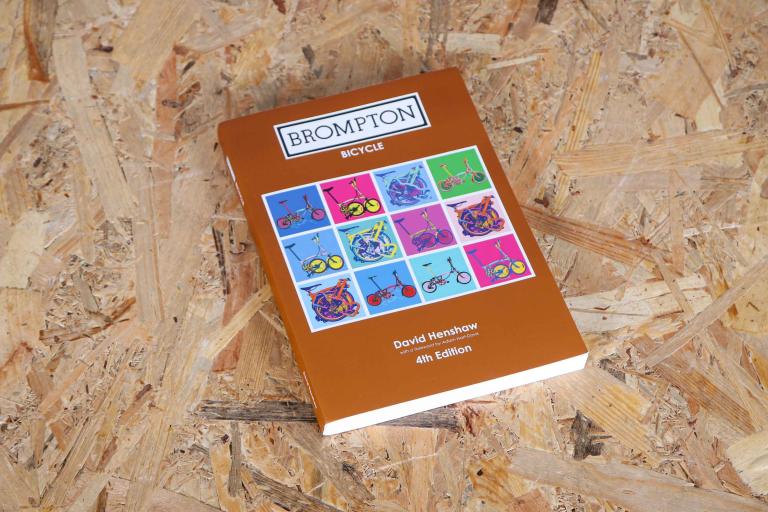
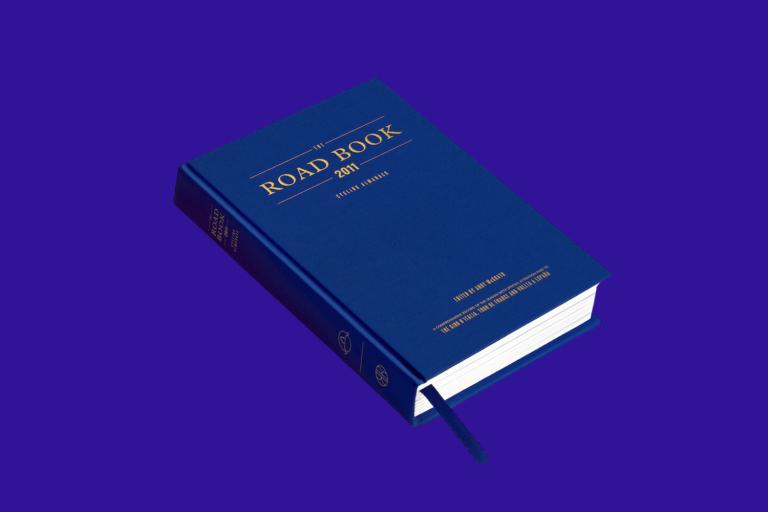
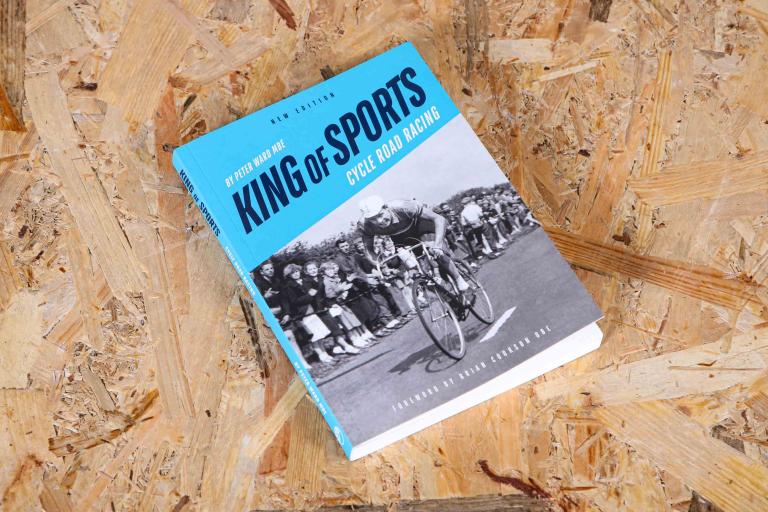
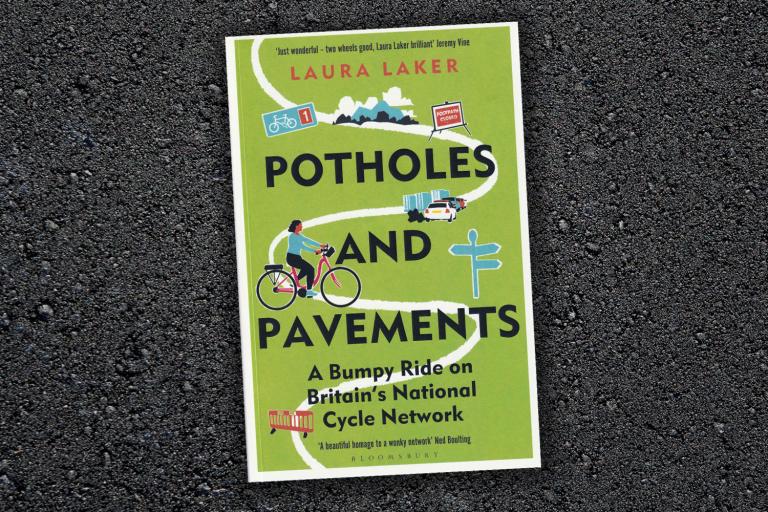
Add new comment
3 comments
“The wind at my back”... “Tail winds”... Whilst I have heard of these things I’ve always assumed they were a legend, a tale spun to confuse the gullible
I think they're just idioms and not to be taken literally, like 'costs an arm and a leg' or 'seeing eye to eye'.
Thats alright then - at least now I know that the weather gods don’t *really* hate me!